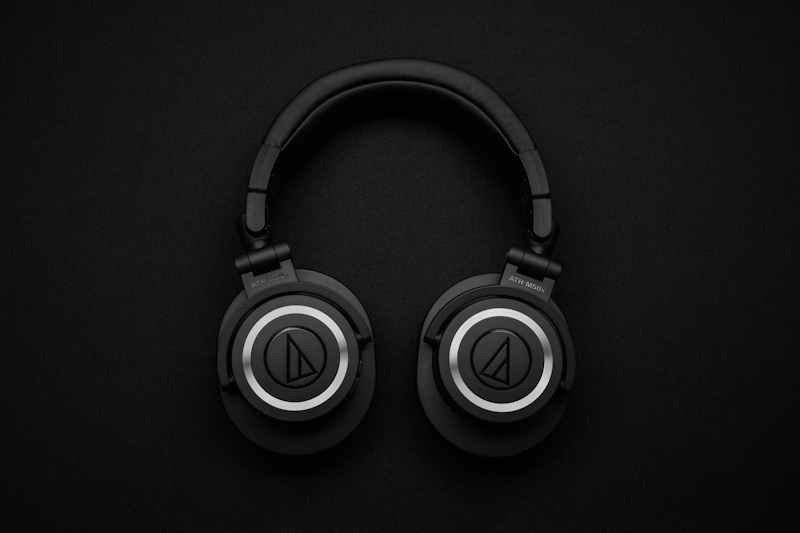The journey of headphone technology has been nothing short of revolutionary. Over the years, headphones have transformed from simple wired devices into sophisticated wireless gadgets. This evolution not only highlights advances in technology but also reflects changing consumer demands and lifestyles.


In the beginning, wired headphones were all about connections. Introduced in the late 19th century, these devices were large and unwieldy, primarily used for radio communication and military purposes. As time progressed, they became more user-friendly and started appearing in homes and workplaces.
Wired headphones offered a direct connection between the audio source and listener, providing reliable sound quality. They were favored for their consistent performance and lack of latency. However, they came with their own set of challenges. The constant tangling of cables was a common annoyance, and mobility was always limited by the length of the wire.
The use of wired headphones was prevalent throughout various aspects of life. People depended on them for listening to music, watching movies, and even during phone calls. But as multimedia consumption grew, so did the demand for more portable solutions. Entering public spaces like gyms or traveling was often cumbersome due to the limitations posed by wires.
This old-school relationship between user and device called for a change. A need for freedom became apparent, pushing innovators to explore beyond traditional boundaries and create audio gear that could adapt to an active lifestyle.
Turning dreams into reality required significant advancements in wireless communication. Initially, products like infrared wireless headphones began paving the way for greater freedom in how users experienced sound. These early models removed the physical tether, allowing listeners to roam freely within a certain range.
Despite offering newfound mobility, infrared had its drawbacks—most notably requiring a clear line of sight between transmitter and receiver. Users found themselves grappling with interruptions whenever something blocked that transmission path.
Further developments led us to RF wireless headsets, which overcame some of these limitations by using radio frequencies. This meant increased range and fewer interruptions, as signals could pass through walls and obstacles with ease.
RF technology allowed listeners to move around their home or office without losing connection to their audio source. This new level of convenience quickly gained popularity, especially among those who craved more flexibility while multitasking or moving about their environment.
Eventually, the breakthrough that changed everything arrived: Bluetooth technology. Launched in the late ’90s, Bluetooth facilitated secure data exchange over short distances. This innovation fundamentally altered how we interacted with virtually every electronic device—not just headphones.
Bluetooth allowed for seamless pairing between mobile phones, tablets, computers, and earphones. Suddenly, consumers could experience music on-the-go with unprecedented ease. Compactness improved drastically with the birth of wireless earbuds, which fit snugly into pockets while delivering high-quality sound—no cables attached!
The introduction of Bluetooth signaled dramatic shifts within the headphone market landscape. Companies raced to innovate, producing sleek, feature-rich models designed to attract and retain loyal customers.
As a result, wireless options flourished, appealing to both audiophiles and casual listeners alike. Yet, each advancement brought fresh questions for buyers navigating this ever-expanding world of audio products.
Amidst rapid transformations, customers faced conundrums regarding choosing suitable options tailored specifically for their needs. Balancing preferences became key—understanding trade-offs such as connectivity stability versus cost efficiency helped inform purchasing decisions.
Factors like sound quality, comfort, portability, and price influenced buyer journeys significantly. Consumers weighed pros and cons when deciding between keeping their trusty wired pairs or investing in newer, advanced alternatives.
Fortunately, there are accessible solutions designed to address individual requirements effectively. Audiophiles who value premium audio fidelity may still prefer wired setups, ensuring lossless playback directly from their preferred sources.
Meanwhile, avid travelers and fitness enthusiasts might lean towards compact, wireless options that accommodate dynamic routines while maintaining overall sound excellence. Exploring customizable settings catered to specific profiles ensures satisfaction regardless of choice.
Ultimately, whether leaning toward traditional or cutting-edge technologies, users now enjoy unparalleled versatility when it comes to fulfilling their diverse auditory cravings. By understanding unique priorities and aligning choices accordingly, everyone wins in today’s vibrant world of sound engineering.
Looking ahead, what will headphone technology bring next? One thing is certain: innovation remains relentless, driving continuous discovery across sonic realms worldwide.
Future trends could involve enhancements like augmented reality integrations that blend digital content seamlessly alongside real-world audio. Improved AI voice assistance will further personalize interactions, making it easier than ever for users to connect with their devices meaningfully and intuitively. Barriers separating wired from wireless continue fading away altogether, drawing closer to executing perfect harmony devoid entirely of restrictions—a holistic utopia where creativity thrives unburdened by technical shortcomings.
Industry veterans are cautiously optimistic, pointing to several key differences. The current growth appears more…
When you’re ready to upgrade, trusted vendors like ServerMonkey have your back with tested, enterprise-grade…
The best VPS rental choice depends on your specific needs and technical capabilities. Ukrainian companies…
Mental health practice management software supports therapy, privacy, and billing. OBGYN EMR tracks pregnancies, labs,…
Internal Medicine EHR systems manage broad care needs. Mental health practice management software keeps records…
Oncology clinics that use Oncology RCM, Oncology Practice Management Software and Pediatric EHR provide safer…